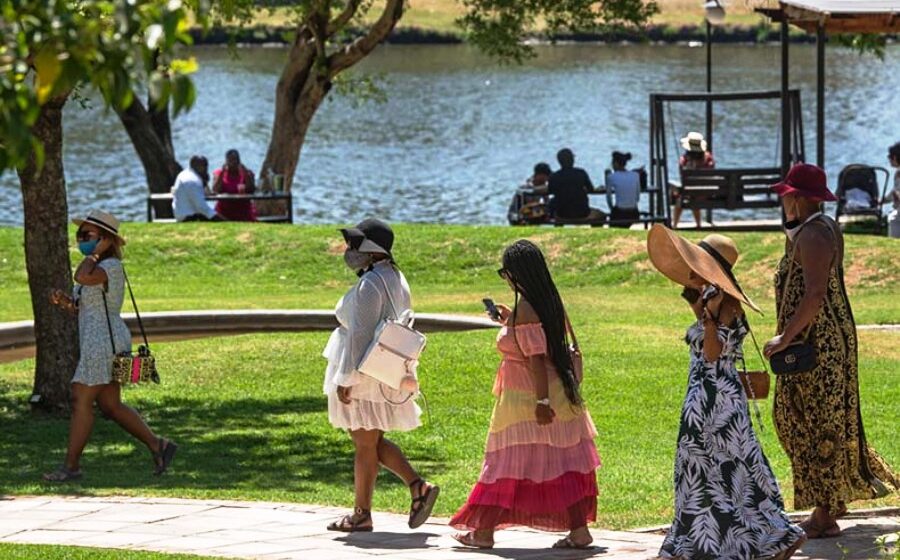Patients are crammed into every corner of the hospital’s emergency room ward. They lie on beds and gurneys, or sit slumped in wheelchairs. Many suck on oxygen, but nobody talks. Some die while waiting for a bed.
On the worst nights in Johannesburg, currently in the grips of a terrible wave of infections, medics at one hospital must turn away ambulances carrying Covid-19 patients. It may be a diversion order more common to mass casualty events, but 16 months into the pandemic here, Covid-19 is a mass casualty event.
“It’s devastating, it’s soul destroying. We are trained to save lives, but you revert to that wartime mentality. You revert to becoming numbed, you revert to becoming blunted,” said a senior doctor at a major public hospital in South Africa’s largest city.
“Patients are being brought in in cars with desperately ill patients who have been turned away from other hospitals with no beds.”
“The third wave has been far more devastating, far more overwhelming,” the doctor said.
The disease is no respecter of status, with authorities announcing Friday that the city’s mayor had died of Covid-19 in hospital.
“It is my sad duty to confirm that the Executive Mayor of the City of Johannesburg, Cllr Geoffrey Makhubo has indeed succumbed to Covid-19,” said acting Executive Mayor and Member of the Mayoral Committee Eunice Mgcina via the official Twitter account of the city’s authorities.
“We had hoped that the Executive Mayor would beat the virus and return to work and lead the city as we face this pandemic that has devastated lives and livelihoods. Our heartfelt condolences go to his wife, daughters, mother and the rest of his family, friends and comrades,” added Mgcina.
In the early days of the fight against Covid-19, South Africans cheered healthcare workers in neighborhoods across this city. Since then there have been more than 2.1 million confirmed cases in the country, and over 63,000 deaths — making it one of the worst-affected countries in the region per capita. Excess deaths suggest the toll is much higher.
The applause stopped months ago, but the impact of Covid-19 is at its worst right now.
Sixteen months into the pandemic here and doctors describe a system beyond its breaking point — with insufficient beds and barely enough oxygen. Sometimes the only time a bed opens is when a patient dies.
“There are patients that are dying while they are waiting to be seen, while they are waiting to go to the ward. Because the resources are just being overwhelmed by the onslaught of patients,” the doctor said, an assessment corroborated by paramedics and other physicians.
Sometimes patients will die when entering a hospital no matter what the level of care, they say. But this wave means tough choices have to be made and the best care can’t always be given.
The explosion of cases and deaths, as well as renewed lockdowns across the region have come as a surprise to many public health experts. With low rates of vaccination in South Africa, they did expect another wave, but some scientists thought that the very worst was over.
After all, the southern African region was hit by a first wave and battered by a second wave driven by the more infectious Beta variant discovered by South African scientists. The thinking was that a level of immunity in much of the population might dampen future spikes.



